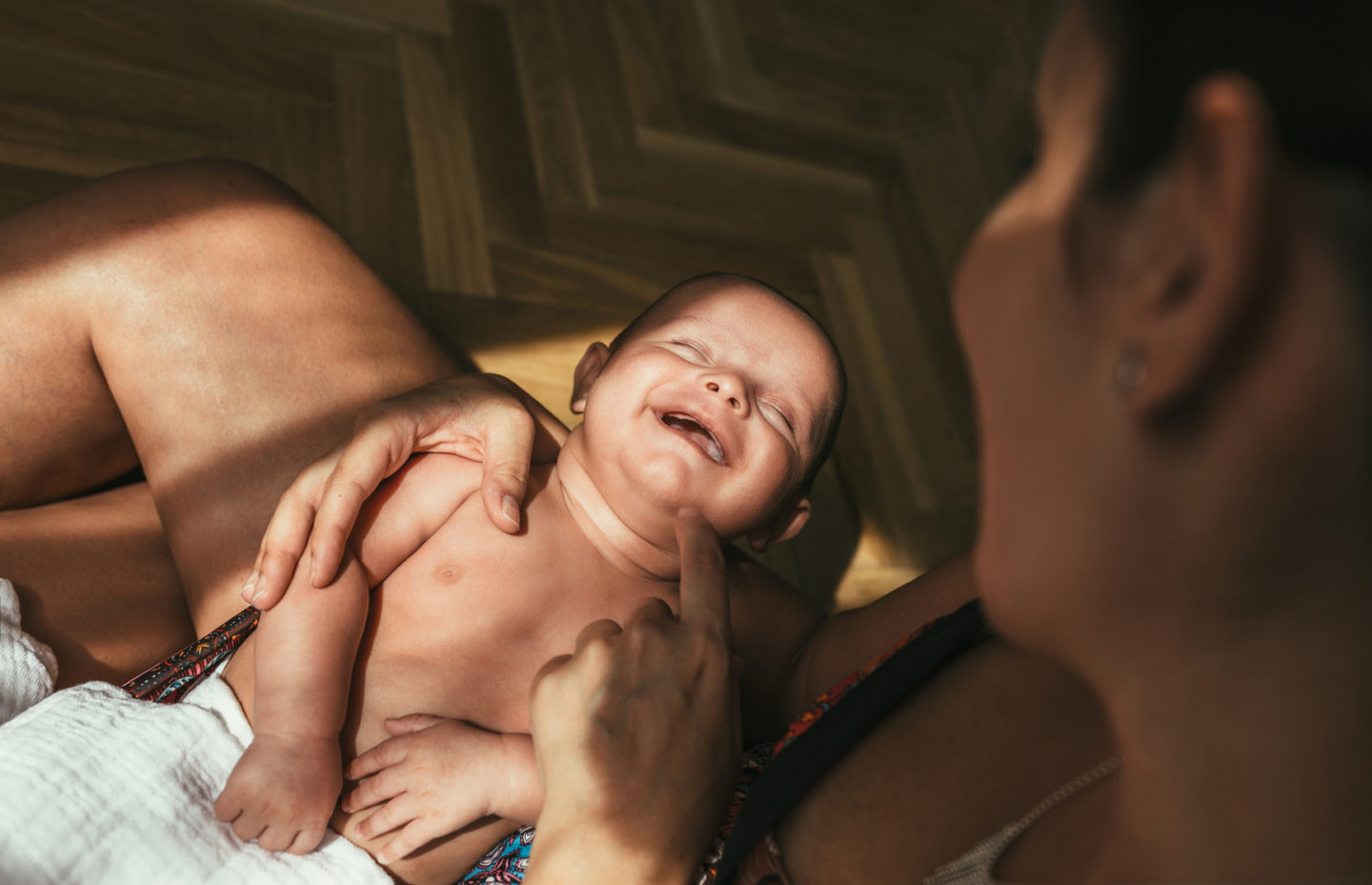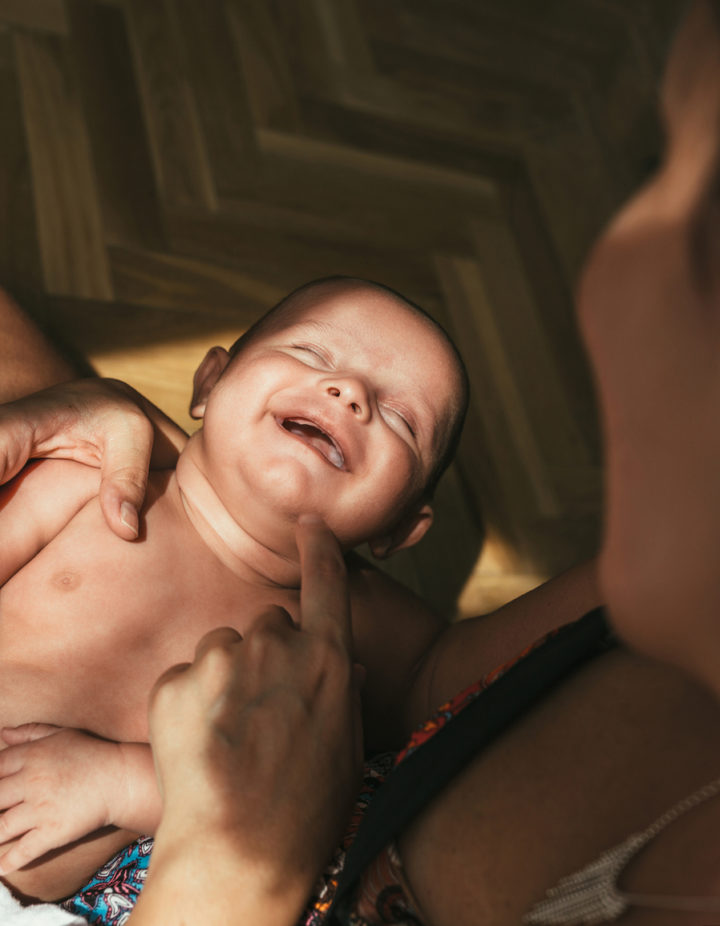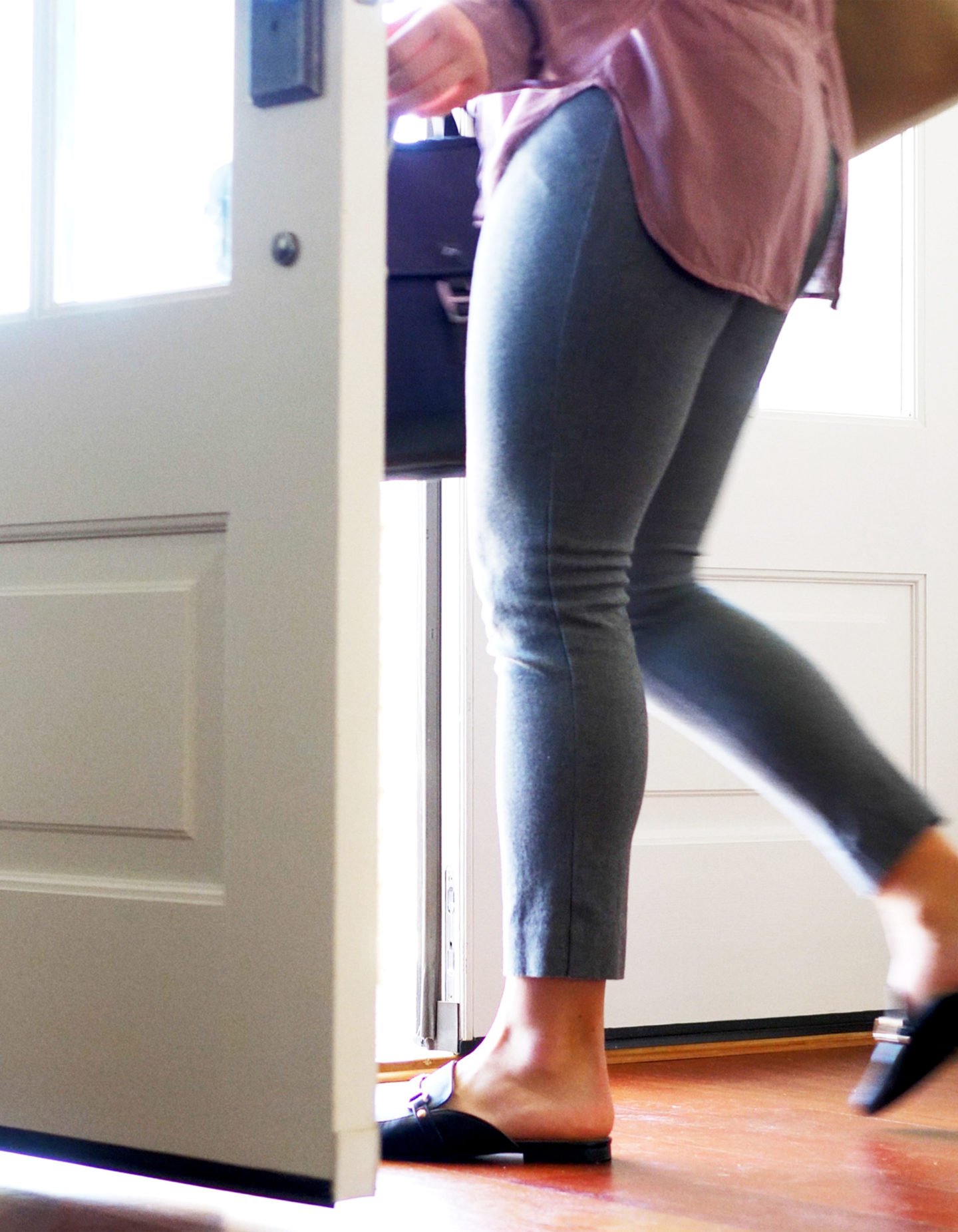 The next time you roll your eyes at another mom for the wide-eyed, over-the-top, insanely humiliating way she’s talking to her baby, you might want to check yourself. According to a recent study by the National Academy of Science, the way parents talk to their infants is strongly associated with early language development, and that more-is-more, overly accentuated style of communication even has a name: PARENTESE. And sure, it might be super uncomfortable to constantly be chatting with your newborn, but when they’re babbling nonstop in a few months, you’ll be pretty happy you did. Here to get you schooled on learning and speaking Parentese is our resident pediatric expert and host of Raising Good Humans podcast, Dr. Aliza Pressman. Let’s get fluent, shall we?
The next time you roll your eyes at another mom for the wide-eyed, over-the-top, insanely humiliating way she’s talking to her baby, you might want to check yourself. According to a recent study by the National Academy of Science, the way parents talk to their infants is strongly associated with early language development, and that more-is-more, overly accentuated style of communication even has a name: PARENTESE. And sure, it might be super uncomfortable to constantly be chatting with your newborn, but when they’re babbling nonstop in a few months, you’ll be pretty happy you did. Here to get you schooled on learning and speaking Parentese is our resident pediatric expert and host of Raising Good Humans podcast, Dr. Aliza Pressman. Let’s get fluent, shall we?
“Infant directed speech is basically what we do almost all the time without realizing it,” says Aliza. “It’s known as Parentese instinctually, that sing-song voice where you stretch out your vocal intonations with over-the-top facial expressions. The key is to do it in an interactive way, even when your baby is as young as three months old. You wait for them to finish their cooing, and respond in Parentese as though it were a real conversation. Those infants with parents who do this have much better language skills after the first year. So it’s “GOOD MORNING! Oh, yes! Thank you for telling me!” Of course, there are some people where that’s not their gut instinct, but you can change the course of how your infant will learn language by making a conscious effort.
“Apart from speaking in Parentese, emphasize back and forth communication so you always acknowledge your infant’s bid for attention. Anytime they vocalize anything, it’s their version of language even if it doesn’t sound like it, which increases their language and understanding of conversation. You can start by paying attention to what they’re looking at and naming it, describing it, picking it up if it’s safe. All those things build language skills. When you pay attention to something, they look at it, too. When they’re interested and you name what it is, you’re getting an opportunity to excite them about the world.

Photo by Neram Nimindé
“Another common term I use is sportscasting. You tell yourself you’re a sportscaster and start describing the day and the environment to your baby. It’s hard to come up with things to do and say constantly, but narrating out loud what’s happening can help. ‘I’m stirring my coffee, I can’t wait to taste it. I’m going to take a sip now.’ You have to talk to yourself about what you’re doing.
The last thing you can do is surround your home in prints, as in actual newspaper and books and make literacy a part of the experience in your household. It actually helps them with understanding language. You don’t have to go crazy over it. The first seven months of their life doesn’t make a statistical difference but it’s about setting habits up early, because after seven months it does make a difference. So whenever you feel like it, take out a book and start reading to your kids.
All of this being said, there will be times when your child doesn’t need to have you chatting and you can totally give yourself a break. You have a lot going on and don’t feel like you need to constantly talk. But yes, your parenting can make a difference in your infant’s language development.”
The 15 Most Common First Words
1. Dad (or Dada, Daddy, Papa, etc.)
2. Mom (or Mama, Mommy, Mum, etc.)
3. Hi (or Hiya, Hey, Heya, Hello)
4. Buba (or Bub or Baba)
5. Dog (or Doggy, Puppy)
6. Ball
7. No
8. Cat (or Kitty)
9. Nana
10. Bye
11. Duck
12. Ta (or Tata)
13. Baby
14. Uh oh
15. Car
*source: Popsugar Family




